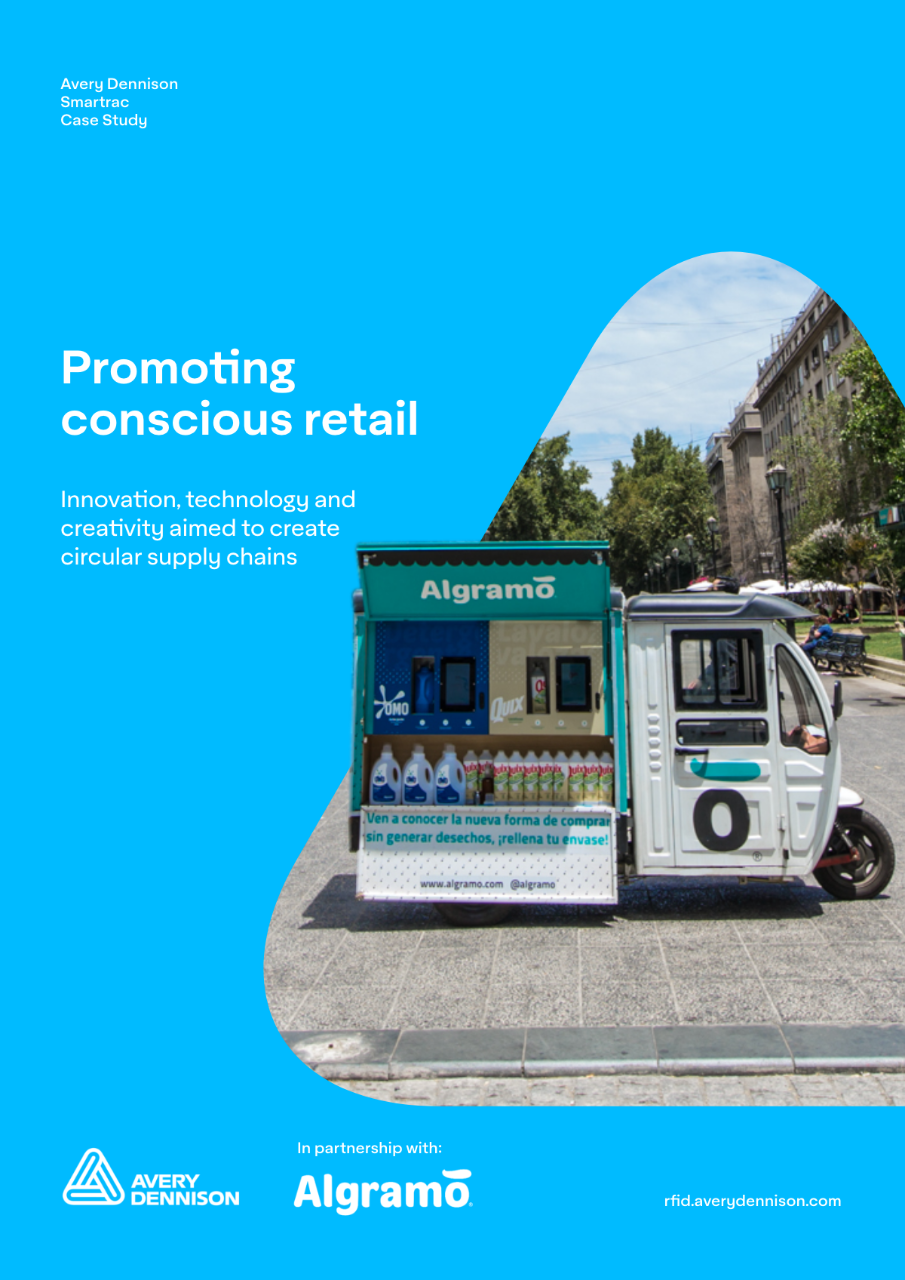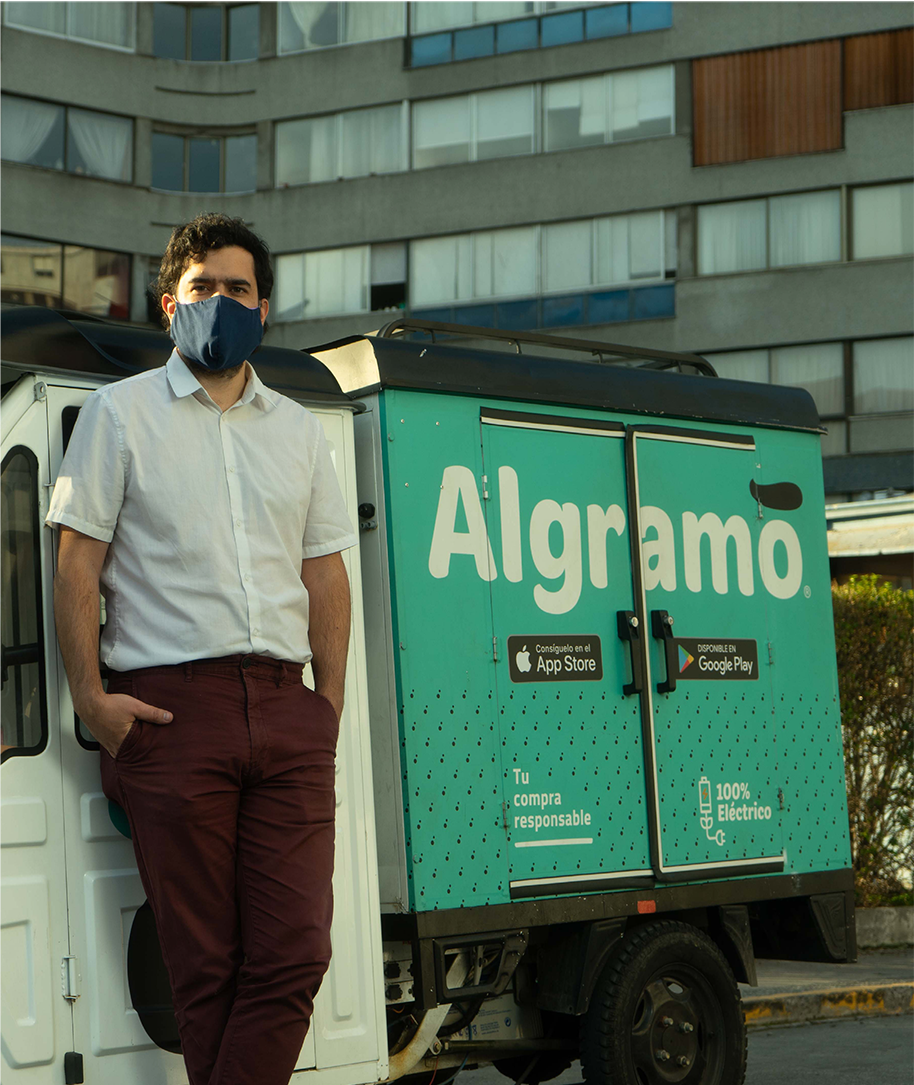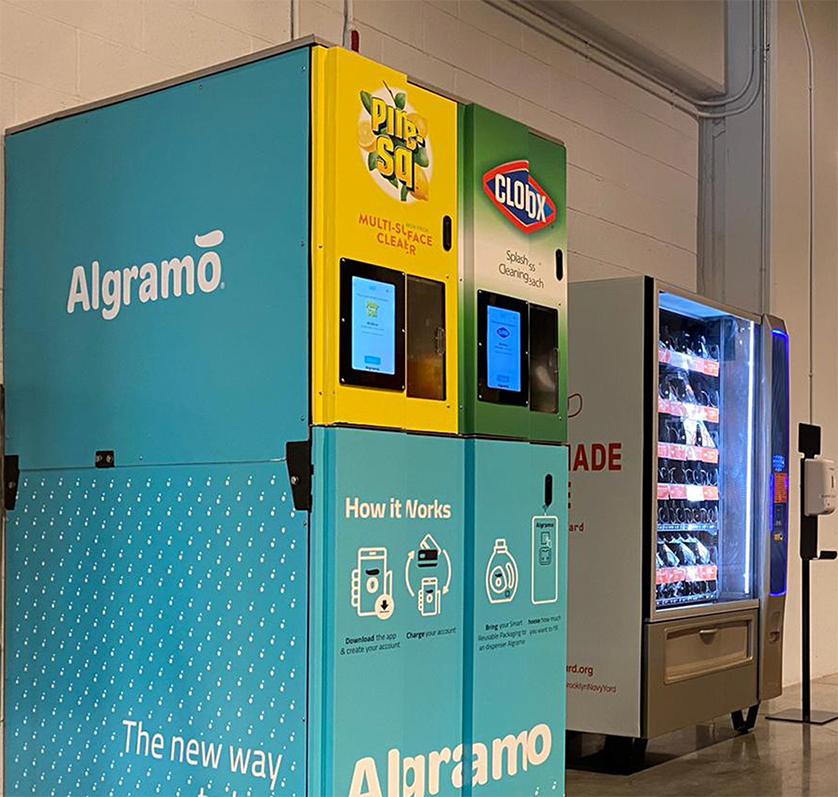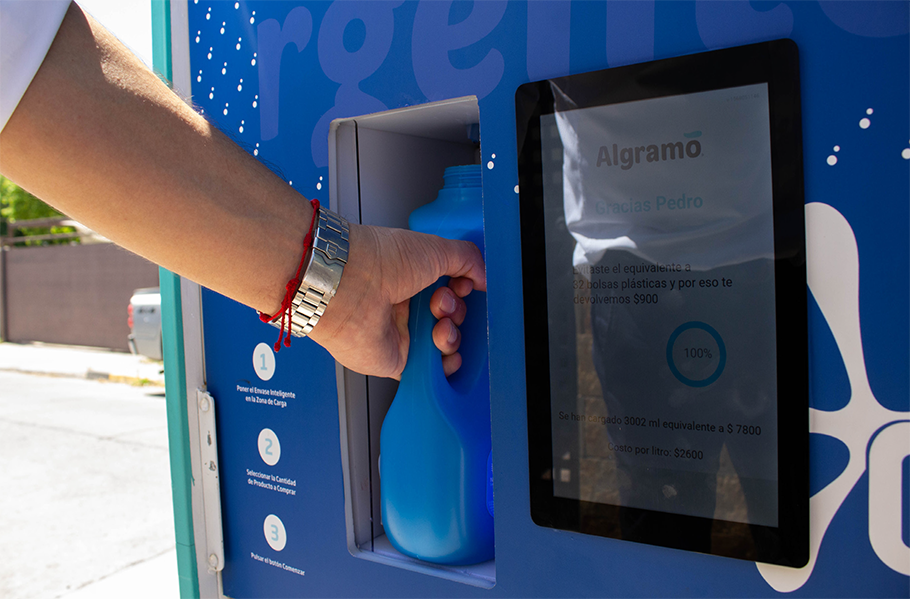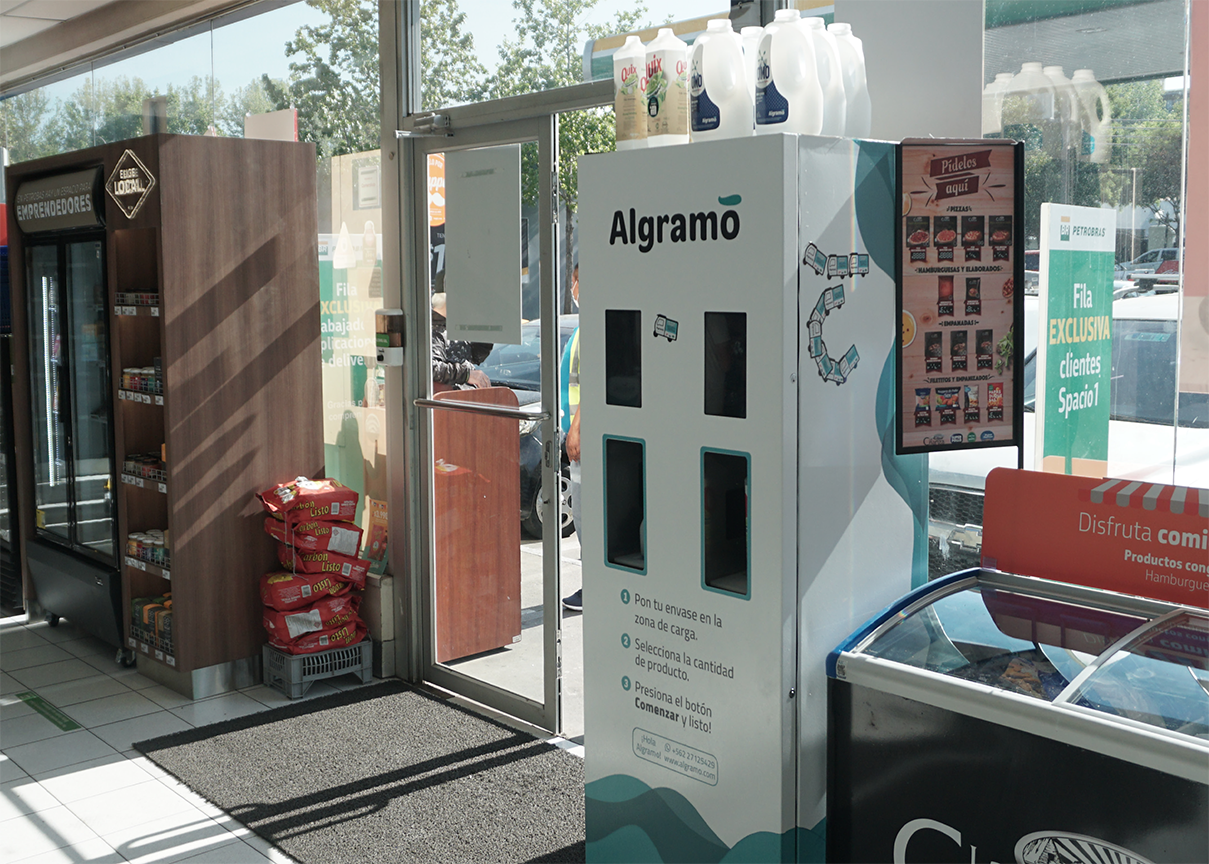Once breakeven was achieved, when the operation became self-sustaining and recognition was already established, the Algramo team began working on the need to expand its marketing network in order to increase its impact through different sales channels.
The idea was to evolve the functioning of the system, until now organic, using new technologies capable of mass implementation. For this, the company worked together with Avery Dennison to launch an interface capable of taking this commercial concept to a higher level. Then, and delving into concepts related to the circular economy, the product distribution and acquisition modality was completely redesigned, implementing state-of-the-art RFID technology and mobile solutions that enabled a new consumer / product interaction.
The benefits of this commercial scenario are many and impact the brand, the user, the points of sale and the stakeholders alike. The brand obtains product traceability and direct contact with the customer; the user has the security of storing money in a controlled account wallet, and the transparency of knowing the environmental impact of its operation; and the retailer benefits from a self-service, “cashless and touchless” solution whereby the consumer places his smart container in the dispenser, the dispenser “reads” it, identifies the user and sends a notification to his cell phone so that he can start the operation.
In a nutshell: a fast, reliable, innovative system with great ecological / social value.
This new model was based on 3 main pillars:

